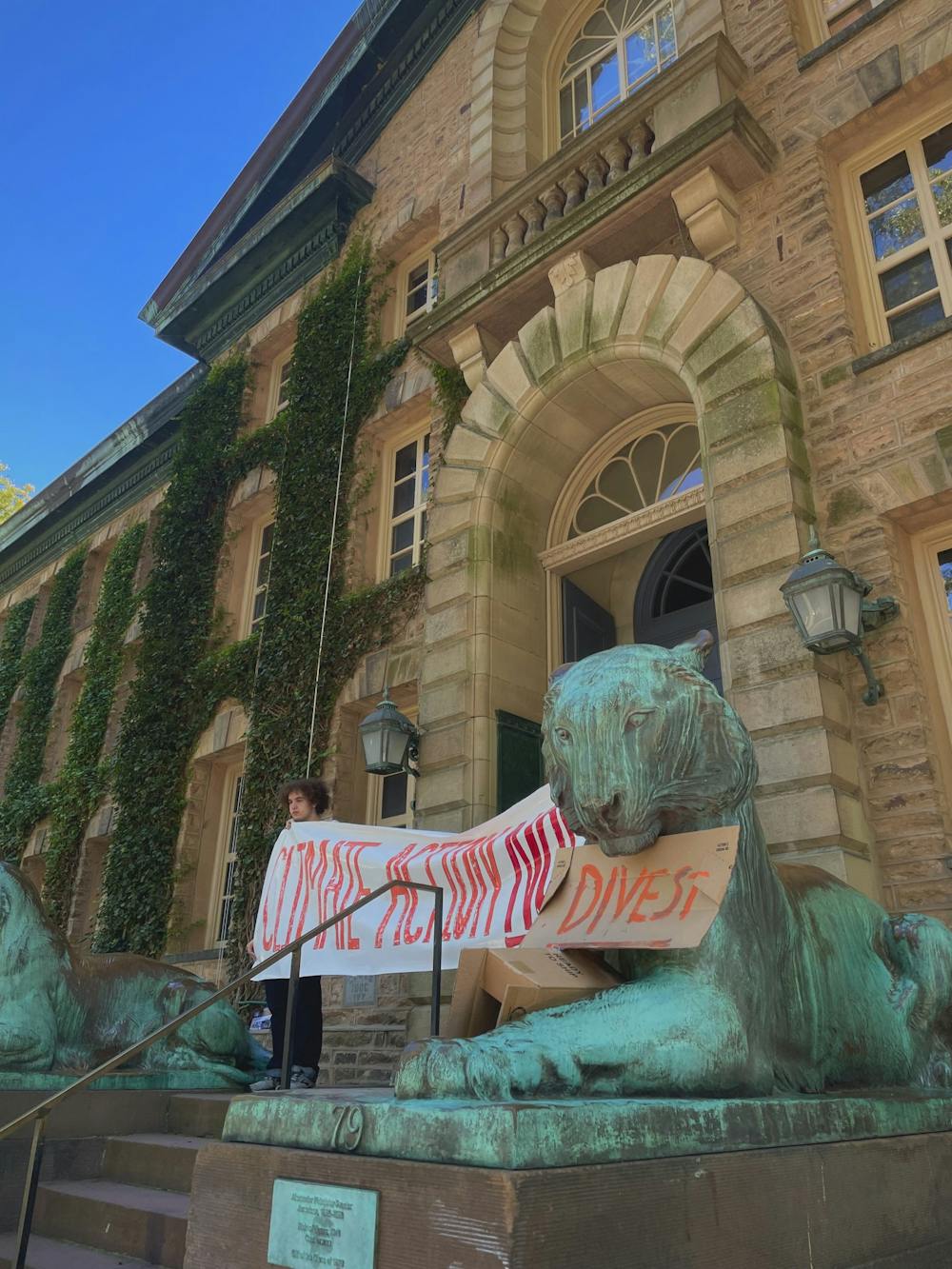A long-awaited University report, authored by the Faculty Panel on Fossil Fuel Disassociation, has proposed criteria for identifying companies from which the University may possibly divest holdings of its $37.7 billion endowment.
In the new report, the group of faculty members, chaired by civil and environmental engineering professor Anu Ramaswami, focused on creating metrics for two overarching issues: whether companies are engaged in intentional dispersal of climate disinformation, and whether companies are engaged in two specific sectors of the fossil fuel industry — thermal coal and tar sands oils.
In order for a company to be considered to be “spreading climate disinformation,” the disinformation has to come from “an agent communicating with the intent to mislead,” according to the report. In determining whether such intent exists, the panel wrote that civil lawsuits could serve as a useful framework, recommending that the University use the “preponderance of evidence” standard — generally used to indicate a legal standard under which the burden of proof has been met if there is a greater than 50 percent chance that the claim is true. The panel also proposed a “scorecard” for navigating these determinations and listed specific arguments that would qualify as intended disinformation.
The report’s proposed criteria, published on June 2, now await approval by the University Board of Trustees.
The report marks the latest step in Princeton’s path to partial divestment from fossil fuels. It comes a year after the University, on May 27, 2021, first announced its intention to financially disengage from companies responsible for the spread of climate disinformation and certain segments of the fossil fuel industry associated with especially high emissions rates, such as coal and tar sands.
According to figures released at the March meeting of the Council of the Princeton University Community (CPUC), the University’s endowment currently has a total $1.7 billion exposure to the fossil fuel industry, with $13 million held directly in fossil-fuel investments.
Though termed a “substantive step forward” by Undergraduate Student Government President Mayu Takeuchi ’23, some student climate activists said the faculty panel’s report felt to them like another hurdle in a long bureaucratic process that they believe has frustrated divestment efforts.
“Princeton still has not divested a single dollar from its $1.7 billion in fossil fuel companies,” Aaron Serianni ’25 and Nate Howard ’25, co-coordinators of Divest Princeton, the student group dedicated to advocating for full divestment from fossil fuels, said in a joint statement to The Daily Princetonian.

“This report is only now being sent to the Board of Trustees for further discussion, a full year after Princeton’s first announcement about possible partial divestment,” they added.
The faculty report’s criteria for evaluating companies’ climate-related disinformation were created around five categories of “‘super claim’” content areas, which the report said were developed based on existing climate disinformation campaigns in the United States and globally. According to the report, the five categories include “climate change is not happening,” “human greenhouse gas (GHG) emissions are not causing it,” “climate impacts are not bad,” “climate policy/solutions are not working,” and “climate science is unreliable.”
The report’s “scorecard” recommendation is geared toward helping the University determine which companies are intentionally misleading on climate change, versus which companies’ claims “may indicate potential for legitimate skepticism.” The scorecard evaluates data items such as companies’ internal versus external statements, social media, advertisements, and membership in organizations that “spread disinformation.”
The panel report also includes metrics to identify power plants and coal producers involved with thermal coal or tar sands oils. The panel supplemented these tools with recommendations, suggesting that the University focus “on the most severe and egregious cases” of disinformation, and begin fossil fuel reviews with the largest fossil fuel companies in Princeton University’s investment portfolio.

Though the report identified disassociation priorities as evaluating companies’ engagement with climate disinformation as well as thermal coal and tar sands oils, the panel said they designed the metrics with the potential for an expansion of the University’s disassociation scope in mind.
According to the report, contributing faculty “sought to develop metrics, standards and algorithms such that they could be updated in future years and potentially translated to other industry segments.”
On May 12, the report was submitted for review to the Administrative Committee — a six-person board of University administrators and representatives of Princeton University Investment Company (PRINCO). The Trustee Committee on Finance has begun initial reviews and will convene in a special meeting this summer to consider the report, according to the University website.
University Vice President and Secretary Hilary A. Parker told the ‘Prince’ that these steps are aimed at ensuring that the Board of Trustees can act on these issues in the fall and reflects the University’s “commitment and sense of urgency to implement the dissociation decision.”
Some student activists see it differently. With Princeton now one of three Ivy League institutions that has yet to fully divest from fossil fuels, Divest Princeton activists argued that the institution is falling behind its peers.
“Divest Princeton will continue demanding full, rapid, and transparent divestment and dissociation from the fossil fuel industry,” Serianni and Howard told the ‘Prince.’
After the recommended criteria is finalized by the Administrative Committee and pending approval by the Board of Trustees, the University is expected to release a list of companies flagged for dissociation in early Fall 2022.
Correction: A previous version of this article stated that the list of companies flagged for dissociation would be released in Fall 2023, when in fact it is planned to be released in Fall 2022.
Tess Weinreich is a news staff writer and features contributor for the 'Prince.' She can be reached at tw7353@princeton.edu.
News staff writer Annie Rupertus contributed reporting.








